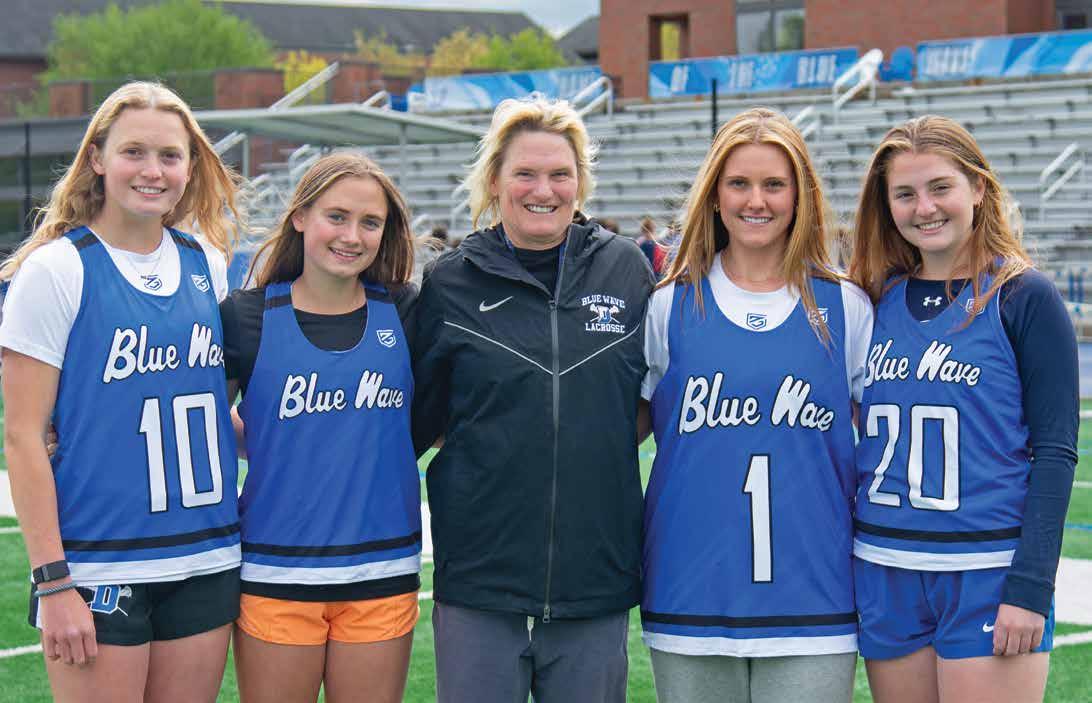
2 minute read
Better Together: Mental Health—On and Off the Field
How do you keep your head when you play for a top girls lacrosse team like Coach Lisa Lindley’s Darien High School squad—a perennial powerhouse (at press time, they were ranked #1 in the nation), and the spotlight’s always on, thanks to social media that’s never off? Or when a team you should be beating inches ahead, you have a bad game, you’re on the team but don’t play much or, heaven forbid, you lose …at a time when adolescent anxiety is already through the roof? It helps if your coach cares about your mental health as much as she cares about your skills and fitness—as Coach Lindley does. In this Q&A, she told us why, what she does about it and how we, as parents and fans, can best support these elite athletes. (Note: Lisa, a National Lacrosse Hall of Fame coach, is also mom to two sons who played lacrosse at the highest levels.) – Editor
Q: Do you see a lot of anxiety amongst your players. Lisa: Yes.
Advertisement
Q: How do you help them deal with that?
Lisa: Well, the events that happened last spring really affected our team. So I really wanted to find something that would help them and to set a culture where they can talk about mental health. That’s when I found Morgan’s Message. It’s student-driven so we have four ambassadors. The ambassadors lead (mental health)discussions for the team.
Q: You began coaching at DHS in 1994. Has the mental health aspect of the game changed?
Lisa: Yes. I would say within the last 10 years, it has become more prominent than ever.
Q: What do you attribute it to?
Lisa: I think one of the main reasons is social media …looking and seeing what other kids are doing and then having the whole FOMO thing. But then it goes a step further when you’re dealing with social media in sports. Certain players get written up and I think for some, it becomes, ‘Why aren’t I written up?’ There’s a lot of emphasis on that and we’re guilty of it too because we promote it on our Twitter page and our Instagram page, but I don’t like it. I wish it was more like when I started when there was no social media.
Q: So what you’re saying is that in spotlighting the high achievers, the others feel like they become invisible even though the high achievers can’t do what they’re doing without their teammates?
Lisa: Correct.
Q: What do you do to counter the negative effects of social media?
Lisa: One thing I try to stress every year is ‘Hey, listen, at the end of the day, we’re a team and we compete as a team, not as individuals.’
Q: Anything else?
Lisa: The coaches and I instituted a new rule this year and I like what it’s done so far. (The players) are not allowed to have their cell phones on the field and they’re not allowed to have their cell phones out on the bus. So it encourages players to interact with each other. →








